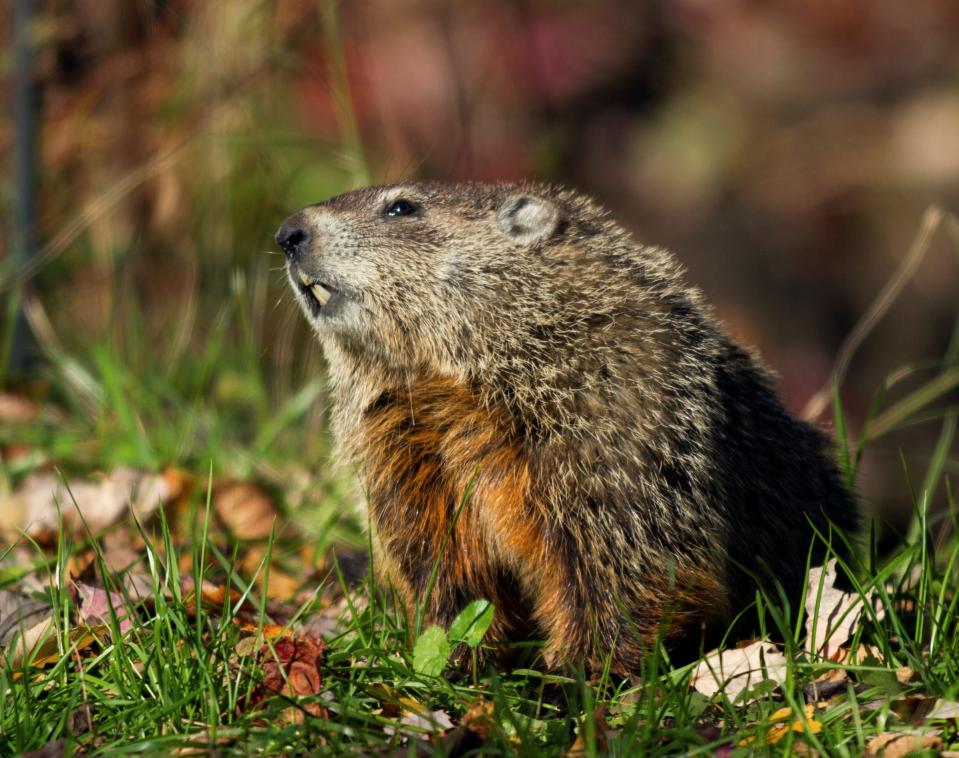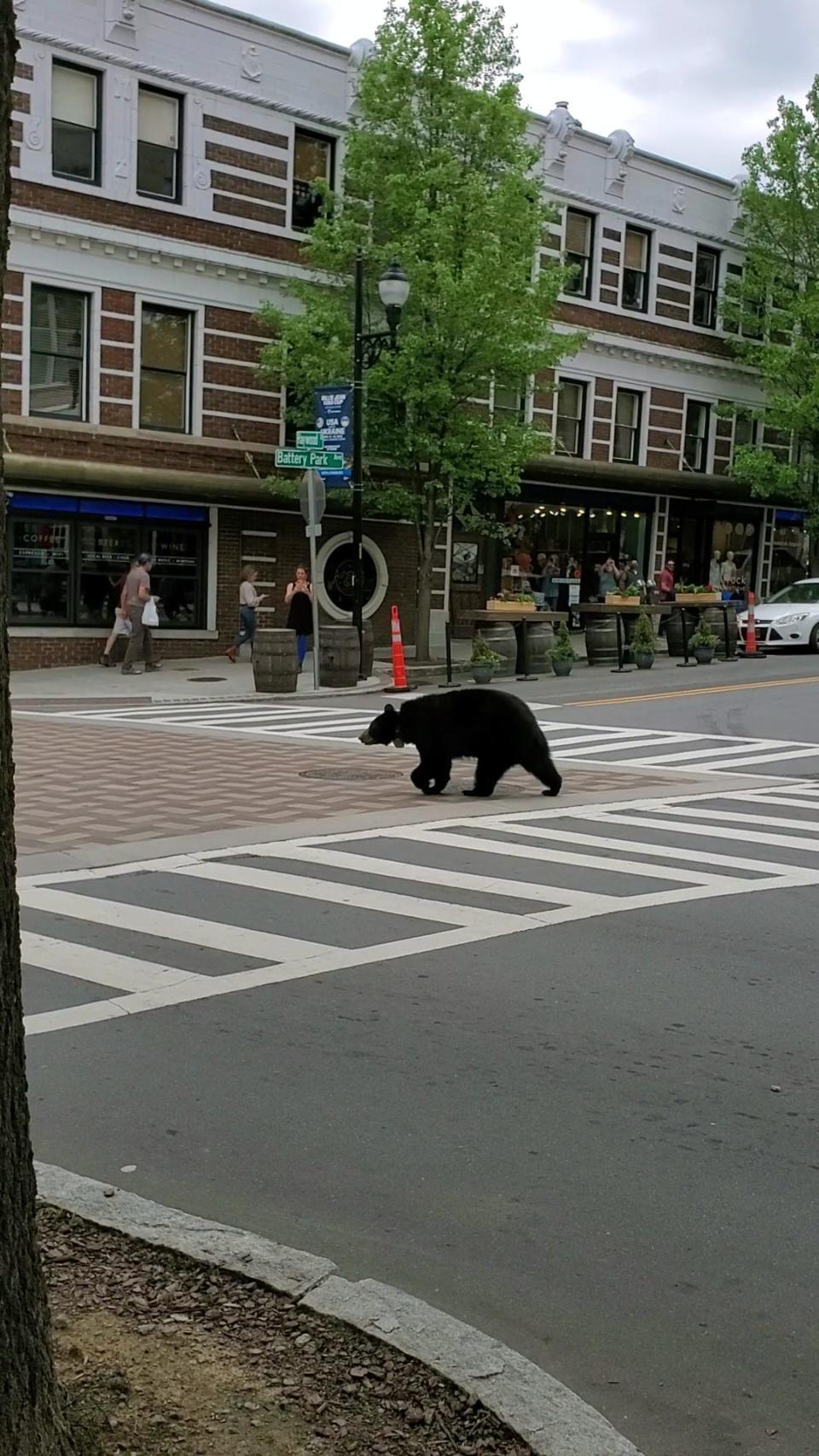Answer Man: Do hibernating animals need to drink? Eat? Defecate?

ASHEVILLE - Today's burning question is about hibernation, the need for water and other less savory biological processes. Got a question for Answer Man or Answer Woman? Email Interim Executive Editor Karen Chávez at kchavez@citizentimes.com and your question could appear in an upcoming column.
Question: I know that there are a number of species in our area that go into various levels of hibernation during our colder winter months. I am aware that during these periods of time activity drops significantly and that they draw upon fat stores for whatever calories are needed to keep them alive. To the best of my knowledge you don't store extra fluids. How is it that these animals can go for such a long time without fluid intake? And while they are burning calories they are not taking in any essential vitamins and minerals that impact cellular health. How is it that those substances are not needed during this time? Finally, because metabolism is so incredibly low, during this period of time is there essentially no excrement from bladder and bowel?
Answer: The answer to all three of those questions varies between species, so let's focus on two of the only subjects that hibernate here in Western North Carolina: the bear and the groundhog.
Related Answer Man:Answer Man: Have the woodchucks gone missing?
More:Answer Woman: Hunting bears as they sleep? Is that fair?
More:Answer Woman: Is climate change keeping Asheville black bears awake during hibernation?
Bears hibernate differently than rodents and bats do, which is widely considered to be the "normal" type of hibernation. That's according to a North Carolina Wildlife Resources Commission blog post from April 1999 by Mark Jones, a former black bear biologist, that was sent to the Citizen Times by Colleen Olfenbuttel, the commission's current black bear and furbearer biologist, in response to these reader questions.
Hibernation, Jones says in the post, is a metabolic change that comes as a result of low food, low temperatures or both. During that change, heart rates lower, blood vessels constrict, shivering is suppressed, breathing slows and oxygen consumption slows down.

Here comes the first big change between bears and groundhogs: body temperature. Groundhogs can drop their body temperature to near freezing, the post says, but bears only drop their temperatures by 10 to 15 degrees.
To get back to the reader's question, this change is important. It means that groundhogs, and other animals that drop their body temperatures low, are much less likely to wake up when disturbed. Bears, on the other hand, can abandon their dens if seriously bothered.
More:Answer Man: Is kudzu a problem inside national forests, parks near Asheville?
More:Answer Woman: How many died in Great Smokies, Blue Ridge Parkway in 2022?
It would follow, then, that groundhogs are asleep for the whole winter, not getting up for eating, drinking or eliminating waste, right? Well, it seems that is wrong. Bears sleep the whole winter, and in areas further north, for up to eight months, the post says, without ever leaving their den for food, water or defecation. Groundhogs, on the other hand, wake up periodically to do all of those things.
"In many ways, (a bear's) ability to hibernate for long periods without feeding or eliminating waste is more advanced and remarkable than what has been considered 'normal' hibernation involving periodic arousal to move about and feed," Jones says in the post.
So how do bears go so long without drinking or getting rid of waste? According to Tracy Davids, the Southeast senior representative for the conservation nonprofit Defenders of Wildlife, bears metabolize fat into both water and energy calories, keeping them sustained during the long sleep.
Essential vitamins and minerals are pulled from muscles and organs during hibernation, Davids said, which are then rebuilt from a substance in the bear's stored urine called urea. Still, bears can lose up to 33% of their body weight over the course of hibernation, according to a post on hibernation from the Katmai National Park and Preserve. Female bears, if they gave birth during hibernation, can lose even more.

More Answer Man: Answer Man: Is Madison Cawthorn divorced yet from Cristina Bayardelle?
"The build-up of waste that bears somehow process would kill most animals if they did not arouse from hibernation to handle normal bodily functions. Furthermore, the long periods of inactivity would result in degradation of bones and muscles for non-hibernating animals. Bears however exit their winter dens strong and healthy after long periods of inactivity," Jones says in his post.
Answer Woman:Answer Woman: When will a new 9-story hotel break ground in downtown Asheville?
Answer Man:Do APD, Buncombe Sheriff have any tactical robots?
Scientists are in the process of researching how bears are able to recycle waste and use it to rebuild their bones and organs, both posts say, which may one day help humans treat kidney, heart and bone diseases or send humans on long distance space expeditions.
Christian Smith is the general assignment reporter for the Asheville Citizen Times. Questions or comments? Contact him at RCSmith@gannett.com or 828-274-2222
This article originally appeared on Asheville Citizen Times: Asheville Answer Man: Do hibernating animals need to drink?

